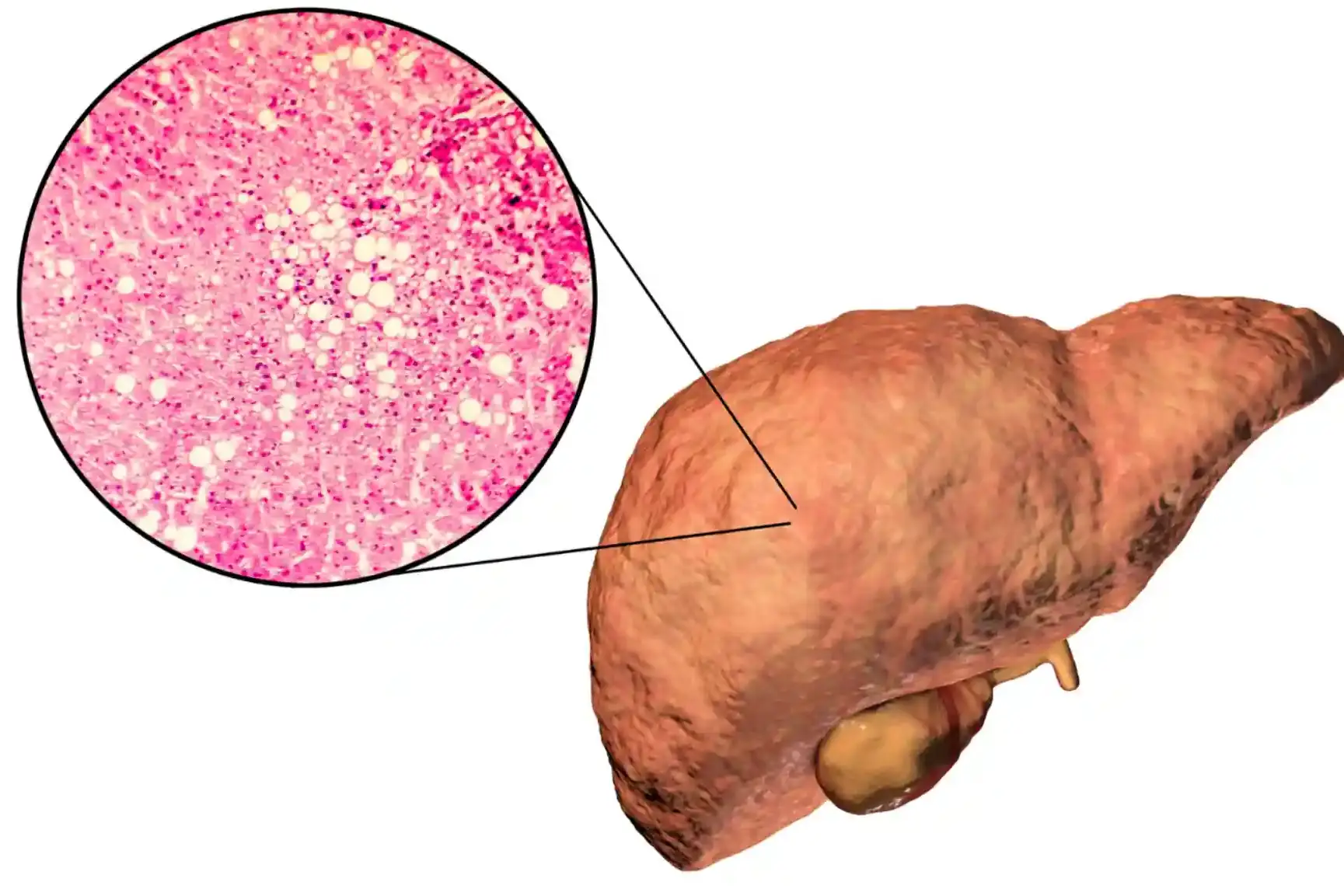Nausea and vomiting are common yet unpleasant. They can happen because of many things. This includes viral or bacterial infections, food poisoning, and being pregnant. It’s important to know the difference between them. This helps you find the right way to feel better and avoid problems.
Table of Contents
ToggleNausea is the feeling like you need to throw up. Vomiting is when your stomach contents come out of your mouth. They can happen at the same time or separately. Many things can cause them. From being pregnant to having an infection or eating bad food.
If you ignore nausea and vomiting, it can get serious. You might get dehydrated or lose vital minerals. There are many ways to treat these symptoms. You can try home remedies, buy medicine at the store, or see a doctor for a prescription. But, it’s key to get help if the problems don’t go away or get worse. They could signal something more severe.
What is Nausea and Vomiting?
Defining Nausea and Vomiting
Nausea is when you feel like you might throw up. Vomiting, on the other hand, is when you actually do. Sometimes, you feel sick before you throw up. But, feeling sick and throwing up can also happen on their own.
Differences Between Nausea and Vomiting
Feeling queasy or having a stomach ache is nausea. It might end in throwing up or not. Vomiting is the throwing up part. Nausea is what you feel, and vomiting is what you do.

Common Causes of Nausea and Vomiting
Nausea and vomiting may come from various reasons. These can include viral or bacterial infections, being pregnant, and some medications. Knowing these common causes helps you deal with or avoid feeling sick.
Viral or Bacterial Infections
Illnesses like the stomach flu or food poisoning are often to blame. They can make your stomach and intestines swell, causing you to feel sick and throw up. These sicknesses come with problems like diarrhea and tummy pain.
Food Poisoning
Eating food that’s gone bad can cause food poisoning. This often leads to symptoms like feeling sick, throwing up, and having diarrhea. The cause is usually harmful bacteria or viruses in the food we consume.
Pregnancy
When you’re pregnant, changes in your hormones can make you nauseous and vomit. This is what’s known as “morning sickness,” though it can happen any time of the day. It’s quite common among pregnant women, affecting most of them.
Motion Sickness
Being in a moving car, on a boat, or riding an amusement attraction might make you sick. Your eyes and ears send conflicting messages, which can confuse your brain. The result is often feeling dizzy or queasy, with the need to vomit.
Migraines and Headaches
Sometimes, severe headaches or migraines cause you to feel nauseated. Why this happens isn’t totally clear. It might have something to do with how your brain uses and moves blood.
Medications and Treatments
Some medicines, like cancer treatments or antibiotics, can make you feel sick. Always talk to your doctor about possible side effects. They can help you better deal with feeling nauseous or vomiting.

Nausea and Vomiting Symptoms
Feeling nauseous and throwing up is not only unpleasant but can also mess up your day. Knowing the signs can help you deal with them better.
Physical Symptoms
You might feel your stomach is on edge, have more spit in your mouth, or aching in your belly. Then, you may throw up too. How bad and for how long it lasts depends on why it’s happening.
Psychological Symptoms
Nausea and vomiting can bring on feelings like worry, panic, and a loss of control. The stress from feeling sick can make your emotional state worse. This, in turn, affects your body more.

Nausea and Vomiting During Pregnancy
“Morning sickness” makes many women feel sick during their first three months of pregnancy. It happens to 90% of them. Symptoms often start to get better after the first trimester. Still, some may feel sick until their baby is born.
Morning Sickness
Feeling a bit queasy or throwing up during pregnancy can last all day, not just mornings. It actually might help you have a healthier baby. But if you’ve dealt with this before or it runs in your family, you’re more likely to have it again.
Other things can make the sickness worse, like not eating, stress, or smells that are too strong. Health issues or carrying more than one baby can also up the chances. It’s not fun but usually goes away after a few months.
Hyperemesis Gravidarum
For some, nausea and vomiting are really serious. This severe condition, called hyperemesis gravidarum, happens in about 1% of pregnancies. It is marked by constant throwing up, not able to drink enough, and losing too much weight.
This can be very hard for the mother and is not that good for the baby either. Babies born from moms with this problem are sometimes too small. Getting the right care during pregnancy can help.

Nausea and Vomiting in Children
Kids vomit more than grown-ups. It happens from things like viruses, bad food, motion sickness, or eating too much. The main villain behind sick tummies in kids is the dreaded stomach flu. If a child often feels sick or throws up, it can slow down their eating and growing.
Causes in Children
Infections are a big reason kids throw up, no matter their age. But, there’s more. Troubles like food allergies or something blocking their guts can do it too. Children who feel nauseous a lot, for no clear reason, might also be dealing with anxiety or sadness. Sometimes, serious tummy troubles like acid reflux or even something like appendicitis are to blame.
Signs of Dehydration in Children
Young ones, especially babies, can get dehydrated quickly if they’re vomiting. There are key signs to watch for, like dry lips or eyes that look sunken. Things like how often they throw up, what it looks like, or whether they have a fever, tell us if we need to get help fast. It’s a red flag if they have really bad belly pain, the throw-up is bloody or green, or they look very sick.

Nausea and Vomiting: When to See a Doctor
If you’re feeling really sick and throwing up a lot, it could be serious. You might be able to handle it at home, but sometimes you need to see a doctor. This is especially true if you can’t stop throwing up, feel very bad, or if other things are happening.
Here’s when you should go see a doctor:
- Vomiting doesn’t stop for over two days (for adults)
- Children under 2 are still vomiting after 24 hours
- Infants have been throwing up for more than 12 hours
- You have nausea and are vomiting a lot for more than a month
- You vomit three or more times in a day
If the throwing up is really bad, there are certain signs that mean you need help right away:
- Chest pain
- Severe stomach pain
- Problems seeing clearly
- Feeling very confused
- A high fever and neck stiffness
- Vomit looks like poop or smells like poop
- Bleeding from your bottom
Also, go to the emergency room if you notice signs of lacking fluids, like a parched mouth or being very thirsty. Other bad signs include eyes that look a little hollow or not going to the bathroom much. If you throw up blood, or if your vomit looks like coffee grounds or is green, it’s time to get help now.
If you’re throwing up a lot for a long time, losing weight without trying, or just feeling really unwell, make an appointment with your doctor. They’ll run some tests to see what’s wrong and help you get better. The right treatment can stop the throwing up and keep you safe from getting more sick.

Complications of Prolonged Nausea and Vomiting
If you’ve been feeling sick to your stomach for a while, it’s not something to ignore. Nausea and vomiting that go on for days can lead to serious problems. It’s important to know about these issues to get the right help.
Dehydration
Feeling sick all the time can make you throw up a lot. This can make you lose too much water and important minerals from your body. For kids and older adults, this is especially risky. Dehydration can make you feel dizzy, tired, and your muscles might cramp. In bad cases, it can hurt your organs.
Electrolyte Imbalance
Vomiting over and over messes with your body’s salt, potassium, and other mineral levels. When these get out of whack, you might feel cramps or be extra tired. It can even affect your heart. Fixing your mineral levels is key to handling ongoing issues with throwing up.
Weight Loss and Malnutrition
Constant nausea and vomiting can make it hard for your body to take in the nutrients it needs. This can lead to weight loss, muscle loss, and malnutrition. Severe malnutrition can weaken your immune system and make other health problems more likely.
Home Remedies for Nausea and Vomiting
To ease nausea and vomiting, there are many natural remedies that work. Drinking plenty of fluids is key. This includes water, ginger ale, and electrolyte drinks. These choices can help calm your stomach and keep you from getting dehydrated.
Adding specific foods to your diet can make a big difference. Eating simple, bland items like crackers and toast can reduce nausea. It’s best to avoid foods that are greasy, spicy, or too sweet since they might upset your stomach less.
Fluids and Hydration
Taking small sips of clear, cold liquids is beneficial for hydration. Water, ginger ale, or drinks with electrolytes can help. It is crucial to keep up your fluid intake if you’re throwing up. This is because not drinking enough can make your nausea worse.
Dietary Changes
Sometimes, changing your diet can help. Stick with plain, gentle foods like crackers or plain bread. Avoiding heavy, spicy, or sugary foods is a good idea. This could keep your stomach from feeling worse.
Ginger and Other Natural Remedies
Ginger, peppermint, and chamomile can work wonders for upset stomachs. These natural remedies are well known for their anti-nausea effects. Ginger, whether in tea, pills, or raw, is a great option. It’s especially useful during pregnancy or after chemo.
Peppermint oil can also help a lot. It has been proven to reduce nausea, even when used with other treatments. So, adding peppermint oil to your methods could be a smart move.
Medications for Nausea and Vomiting
When you still feel sick despite trying home remedies and changing your life, medicines might be the answer. There are both over-the-counter and prescribed drugs to help. They ease your stomach and fight the feeling of throwing up.
Over-the-Counter Medications
If your nausea and vomiting are mild, some medicines you can buy without a prescription might do the trick. These include antacids, antihistamines, and anti-nausea drugs. They are good at calming your stomach and lessening the need to vomit. Be sure to check the labels and use these drugs as directed.
Prescription Medications
For more serious or constant nausea and vomiting, your doctor might give you special medicines. These are called anti-emetics. They target the root causes of your sickness, giving you stronger and more personalized relief. When choosing a drug, your doctor will look at what’s causing it, your health, and any possible side effects.
Nausea and Vomiting in Specific Conditions
Both nausea and vomiting can occur for many reasons. Yet, there are special conditions linked closely to them. We’ll look at these conditions and how they connect to feeling sick and throwing up.
Cyclic Vomiting Syndrome
Cyclic vomiting syndrome is rare but serious. People with this issue face severe sickness and throwing up over and over. Sadly, the cause is unknown. Episodes can last hours or days without clear triggers. Those with this syndrome might feel okay in between. But these random attacks drastically change how they live.
Eating Disorders
Anorexia and bulimia are eating disorders that involve throwing up on purpose. This happens as a part of trying to control weight or to get rid of food. The cycle of feeling sick and vomiting can lead to harmful health results. These include not having enough fluids, imbalance of certain chemicals in the body, and harm to the stomach and gut. It is key for those struggling with these disorders and their sickness to get professional help.
Nausea and Vomiting as COVID-19 Symptoms
Recent studies show that sickness and throwing up could mean someone has COVID-19. This is especially true when the disease mostly affects the stomach and gut. We are still learning how often this happens. But it is very important for anyone feeling sick or throwing up a lot to get medical help. This is especially true if they also have other COVID-19 symptoms.
Preventing Nausea and Vomiting
Dealing with nausea and vomiting can be tough. But, there are ways to stop them before they start. You can avoid these problems by changing what you eat and how you live. Plus, reducing stress is key to feeling better.
Dietary and Lifestyle Modifications
Changing your diet and daily habits is a big help. Having smaller meals, more often can keep your stomach calm. Avoid foods like greasy, spicy, or very sweet items, which are hard to digest. After eating, try to rest with your head up to ease nausea.
Stress Management
Stress and worry can make you feel sick. To tackle these issues, try calming activities. Deep breathing, meditation, and yoga are great for reducing stress. They also improve your mood and health overall.
Travel Precautions
If you’re going on a trip, there are steps to avoid feeling sick. Stay hydrated and steer clear of strong smells. Motion sickness medicines can also be a lifesaver. For kids in cars, having them face forward and limiting sweet snacks can reduce their chances of getting sick.
Conclusion
Nausea and vomiting can happen for many reasons. They range from infections to pregnancy to side effects of drugs. Knowing what might be causing it helps in dealing with these unpleasant symptoms. It’s important to see a doctor when needed. Also, using home treatments and changing your lifestyle can make these symptoms better. This can prevent problems like losing too much weight or dehydration.
Scientists have done a lot of research on people with ongoing, unexplained nausea and vomiting. They also looked at how well drugs work for sickness from working against cancer. And they learned more about helping patients with very hard nausea and vomiting at the end of their lives. Learning why and how these symptoms happen is key to stopping them and making treatments that really work.
Dealing with nausea and vomiting can be tough, no matter the cause. But, taking steps to handle your symptoms can improve your life a lot. It’s essential to put your health first and get the right help. This way, you can get through this hard time and keep on living well.
FAQ
What is the difference between nausea and vomiting?
Nausea makes you feel like you might throw up. Vomiting is when you actually do throw up. The two often happen together, but not always.
What are the common causes of nausea and vomiting?
These feelings can come from infections, bad food, being pregnant, getting motion sickness, or migraines. Certain drugs can also cause them.
What are the symptoms of nausea and vomiting?
You’ll feel sick in your stomach, your mouth might water more, and your stomach might hurt. Vomiting is actually getting rid of what’s in your stomach. You could also feel nervous, scared, or like you’re not in control.
What is “morning sickness” and how common is it during pregnancy?
“Morning sickness” means feeling like you’ll throw up or actually doing it, especially during the first three months of pregnancy. It hits about 90% of expectant moms.
When should you seek medical attention for nausea and vomiting?
See a doctor if you keep feeling sick, throw up a lot, or feel very dehydrated. Also, if your vomit has blood or you start to run a high fever, that’s a sign to get medical help.
What are the potential complications of prolonged nausea and vomiting?
Being sick for a long time can lead to being dehydrated, messing up your body’s balance, and losing too much weight. If not treated, this can make you malnourished.
What are some home remedies for nausea and vomiting?
When you’re feeling sick, try drinking small amounts of clear, cold liquids or eating foods that are plain and easy on your stomach. Some people find relief with herbs like ginger, mint, and chamomile.
What medications can be used to treat nausea and vomiting?
For mild cases, you could use antacids, allergy medicine, or drugs made to stop nausea that you can buy without a prescription. If it’s really bad, your doctor might give you stronger medicine.
What are some specific conditions associated with nausea and vomiting?
There are illnesses like cyclic vomiting syndrome, troubles with eating, and being sick with COVID-19 that make you feel like you need to vomit.
How can nausea and vomiting be prevented?
Eat less but more often to keep your stomach calm. Stay away from foods that make you sick. Try to stay relaxed and prepare well if you’re traveling to avoid getting sick.
Source Links
- https://my.clevelandclinic.org/health/symptoms/8106-nausea–vomiting
- https://www.webmd.com/digestive-disorders/digestive-diseases-nausea-vomiting
- https://medlineplus.gov/nauseaandvomiting.html
- https://www.mayoclinic.org/symptom-checker/nausea-or-vomiting-in-adults-adult/related-factors/itt-20009075
- https://www.uptodate.com/contents/nausea-and-vomiting-of-pregnancy-beyond-the-basics
- https://www.aafp.org/pubs/afp/issues/2014/0615/p965.html
- https://www.ncbi.nlm.nih.gov/pmc/articles/PMC3676933/
- https://www.uptodate.com/contents/nausea-and-vomiting-in-infants-and-children-beyond-the-basics
- https://www.mayoclinic.org/symptom-checker/nausea-or-vomiting-in-children-child/related-factors/itt-20009075
- https://childrenswi.org/medical-care/gastroenterology-liver-and-nutrition-program/conditions/nausea-and-vomiting
- https://www.mayoclinic.org/symptoms/nausea/basics/when-to-see-doctor/sym-20050736?p=1
- https://www.mountsinai.org/health-library/symptoms/nausea-and-vomiting-adults
- https://www.mayoclinic.org/symptoms/nausea/basics/when-to-see-doctor/sym-20050736
- https://www.healthline.com/health/nausea-and-vomiting
- https://www.medicalnewstoday.com/articles/320877
- https://www.healthline.com/nutrition/nausea-remedies
- https://www.drugs.com/condition/nausea-vomiting.html
- https://www.mayoclinic.org/symptoms/nausea/basics/causes/sym-20050736
- https://www.ncbi.nlm.nih.gov/pmc/articles/PMC7933092/
About The Author

Medically reviewed by Dr. Nivedita Pandey, MD, DM (Gastroenterology)
Dr. Nivedita Pandey is a U.S.-trained gastroenterologist and hepatologist with extensive experience in diagnosing and treating liver diseases and gastrointestinal disorders. She specializes in liver enzyme abnormalities, fatty liver disease, hepatitis, cirrhosis, and digestive health.
All content is reviewed for medical accuracy and aligned with current clinical guidelines.





